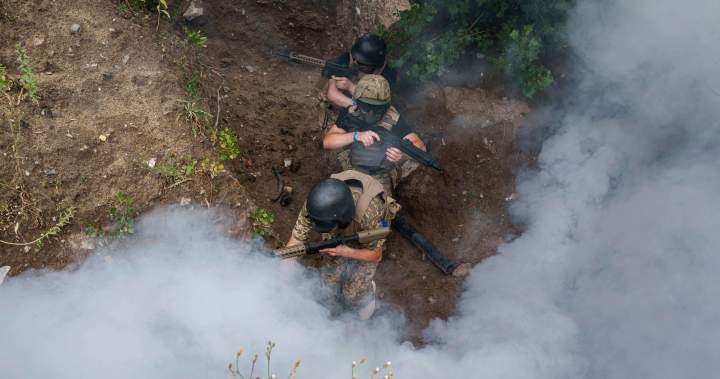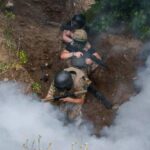In an unprecedented diplomatic maneuver that signals deepening Western resolve to support Ukraine’s defense capabilities, the United States has finalized arrangements to redirect Swiss-made components for Patriot air defense systems to Ukraine. This strategic reallocation comes at a critical juncture in the ongoing conflict, as Ukrainian forces face intensified aerial bombardments across major population centers.
The agreement, confirmed by senior defense officials speaking on condition of anonymity, effectively circumvents Switzerland’s longstanding neutrality policies that had previously blocked direct weapons transfers to active conflict zones. The sophisticated Patriot system components, originally destined for American inventory, will instead bolster Ukraine’s increasingly strained air defense network that has proven vital in protecting civilian infrastructure from Russian missile attacks.
“This represents a significant shift in how allied nations are approaching military aid to Ukraine,” noted Dr. Helena Vasiliev, director of the Institute for Security Studies at the University of Toronto. “By rerouting existing supply chains rather than seeking new export authorizations, Western allies are finding creative solutions to bureaucratic roadblocks that have hampered Ukraine’s defensive capabilities.”
The Patriot missile system, considered among the most advanced air defense platforms globally, has demonstrated remarkable effectiveness against Russian cruise missiles and attack drones. Ukrainian military analysts estimate that areas protected by existing Patriot batteries have seen interception rates exceeding 85% against incoming aerial threats.
Switzerland’s Federal Council reportedly did not object to the arrangement after determining that the transfer would not violate the country’s neutrality laws since the components would be integrated into American-made systems before reaching Ukraine. This nuanced interpretation of Swiss export regulations highlights the evolving nature of neutrality in modern conflicts.
The development occurs against a backdrop of intensifying diplomatic engagement between Kyiv and Western capitals. Ukrainian President Volodymyr Zelenskyy has repeatedly emphasized the urgent need for additional air defense capabilities, particularly as civilian casualties mount from strikes targeting energy infrastructure ahead of winter.
Financial markets have responded cautiously to the announcement, with defense sector stocks showing modest gains. Analysts at major financial institutions suggest this reflects investor assessment that the conflict will continue to drive increased defense spending across NATO countries in the coming fiscal year.
The redirection of these critical defense components raises important questions about the future of international arms control regimes. As traditional concepts of neutrality evolve in response to contemporary conflicts, will we see a fundamental reshaping of how nations balance ethical considerations against geopolitical realities in weapons transfer decisions?
For ongoing updates on this developing situation and other critical world events, stay connected with our comprehensive news coverage.























